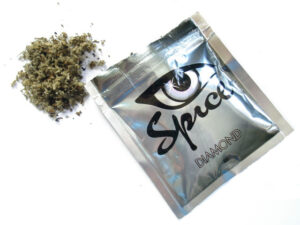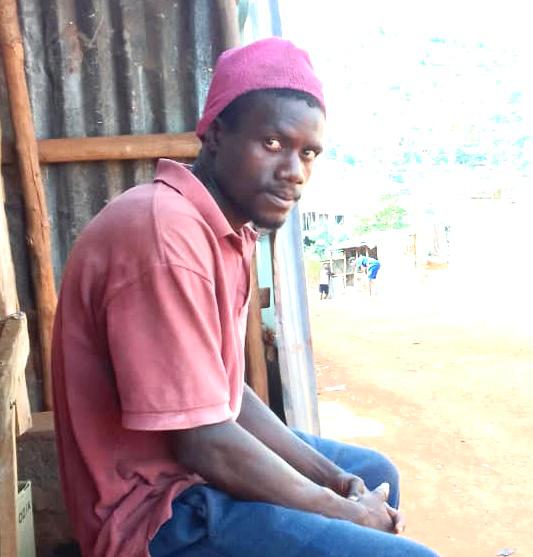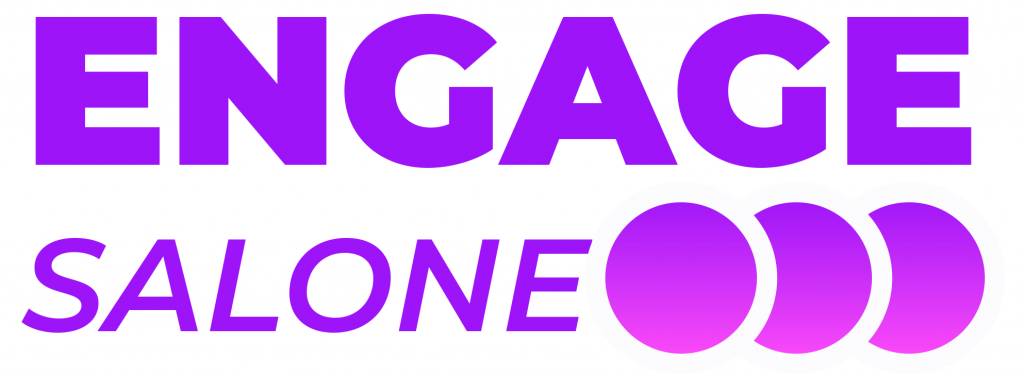Among the many buildings that are scattered in a sprawling neighbourhood in Western Freetown, one shack stands out. It is not a home or office. It is not a stall or shop that sells any of the obvious everyday convenience items, but it gets very busy as early as 7 am. To its diverse clientele, it is known as a “ Kingdom”.
Early in the morning, the Kingdom opens its doors to its intergenerational clientele–young men and women, middle-aged and old folks, all trooping in to secure their morning dose of “kush” a mysterious new high that is ravaging its users, turning lives upside down and chipping them away one puff at a time.
The joint has earned itself a reputation: they sell the best kush in town–strong and punchy, knocking out its users in a couple of drags. It is the potency that makes it a hot cake; kush is just one of the wide range of drugs on offer in this near-24-hour joint. Cheap alcohol, marijuana and other not-so-familiar substances are also on sale. For some of the young people who spend the day here, it is their one-stop shop. They walk in, find everything they need to get high and then spend the day here as some of them go through long periods of recovery time. It is not only a drug joint though. The “Kingdom” is a place where many come to escape the harsh realities of living in Freetown.
Vandy Kamara walks in the morning. The 27-year-old, who works as a casual handyman for a building material store, is among the many young men who spend their day here, smoking kush and drinking cheap alcohol that is available for sale. Vandy makes money unloading trucks and helping with other manual tasks. From the meagre pay he earns, he buys very little food, spending more on kush and alcohol.
“Sometimes, I buy up to 10 packs [of kush] a day, depending on how much money I make,” he said.
Each pack contains roughly three to five grams of the mysterious substance which evades even the experts as they struggle to explain it. Some say it is a cocktail of marijuana and other synthetic drugs. Those familiar with kush say there is not one, but several strains and new powerful varieties flood the market every few months.
“I never used to smoke like this. In fact, I only smoked weed back then. But I don’t even smoke it anymore. I only smoke kush now.”

Vandy has earned a name for himself, albeit for the wrong reasons. Everyone in the community knows him to be an addict, always high on kush. Sadly, he also admits that he is now addicted, spending only a small amount of his income on food and the rest on drugs and alcohol.
“I love it,” he said. “It makes me happy; I don’t think I can stop taking it because it makes me happy,” he added, looking already stoned around seven in the morning.
When he is high on Kush, Vandy becomes immobilised for hours, and that is taking a toll on his health and wellbeing.
“I have not been feeling well lately. I sleep in the open at night because I can’t move after smoking,” he said.
“I also miss money because sometimes I am unable to work,”
Vandy slipped into addiction slowly. He lost both parents and later, his aunt who cared for him. He was left on his own. He switched from marijuana as kush became widely available and has become the go-to drug for many young people. He wanted to get high and escape his troubles, but now he is in more trouble–battling an addiction.
Mariama Kamara saw a young Vandy grow up in the community as a hardworking and decent schoolboy.
“We watched him grow up; he finished secondary school and took the WASSCE [senior secondary school examination] and later, he started smoking marijuana and then kush.”
Vandy was a good boy who looked after himself, according to the neighbours.
“After he lost his aunt, he gave in to peer pressure, took this bad lifestyle and now he has become an addict,” Mariama said.
Stories like Vandy’s have become all too familiar–young men and women, mostly the poor, losing their way in life and emerging in the world of drugs. The availability of drugs like kush and other cheap and easily accessible substances makes it hard to control.
Mohamed Kanu is in his 40s and has lost friends to Kush. One of them got too high, he dozed off and lost balance. He fell and hit his head on a rock. He did not survive. Mohamed’s other friend smoked kush, slept, and never woke up. He probably died of an overdose, but there was no autopsy. He was buried, leaving behind a grieving family and friends like Mohamed.
The clientele at the “Kingdom” seems quite diverse–across generations and gender. It is an indication of how widespread kush consumption is. Videos of military and police personnel who looked like they were heavily intoxicated went viral on social media. The soldiers were summarily dismissed. One expert calls the problem an “epidemic”.

Joshua Abioseh Duncan works with the Mental Health Coalition in Sierra Leone. He provides rehabilitation, counselling and other mental health care services. He attributes the increase in drug abuse and addiction to psychological and emotional problems. Drug use, he says, is most times a reaction to underlying issues that are not seen.
“You would notice that when they come around after taking the drug, they would want it again. So, they can get lost from their reality and eliminate any pointer of burden that comes their way.”
Duncan is worried that the widespread kush use and increasing drug abuse generally “will damage and kill the social and emotional quotient of the youth”.
As an expert who has spent decades working on mental health and addiction issues, Duncan admits that much has not been done to understand the nature and scale of the problem, adding that you cannot come up with solutions without first diagnosing the problem. He told Engage Salone that there had not been any study and government agencies dealing with the issue have very little knowledge of the kush problem.
Duncan also believes that the state’s capacity to handle such widespread addiction problems is very low.
“Our laws are very old. We have developed a new lunacy act which has still not been looked at by the government. We do not have enough trained people to deal with mental health issues; few nurses and a couple of doctors.”
This means, people like Vandy, who are now trapped in addiction, have very low chances of coming back. He lives in a country with little knowledge of how to deal with addiction and mental health generally and with very few trained personnel to help him recover. It does not seem to be a priority.
Looking shabby and unkept, spending most of his time on the streets, Vandy recognises his addiction problems but does not know where to start his journey to recovery. Help seems very far away from him.
“I do not eat much. I know my life has changed a lot. But I also enjoy kush. I can’t go a day without smoking. It will be hard for me to quit,” he said.
About The Author
- Ishmael Sallieu Koromahttps://www.engagesalone.org/author/ishmael-sallieu-koroma/
- Ishmael Sallieu Koromahttps://www.engagesalone.org/author/ishmael-sallieu-koroma/
- Ishmael Sallieu Koromahttps://www.engagesalone.org/author/ishmael-sallieu-koroma/


